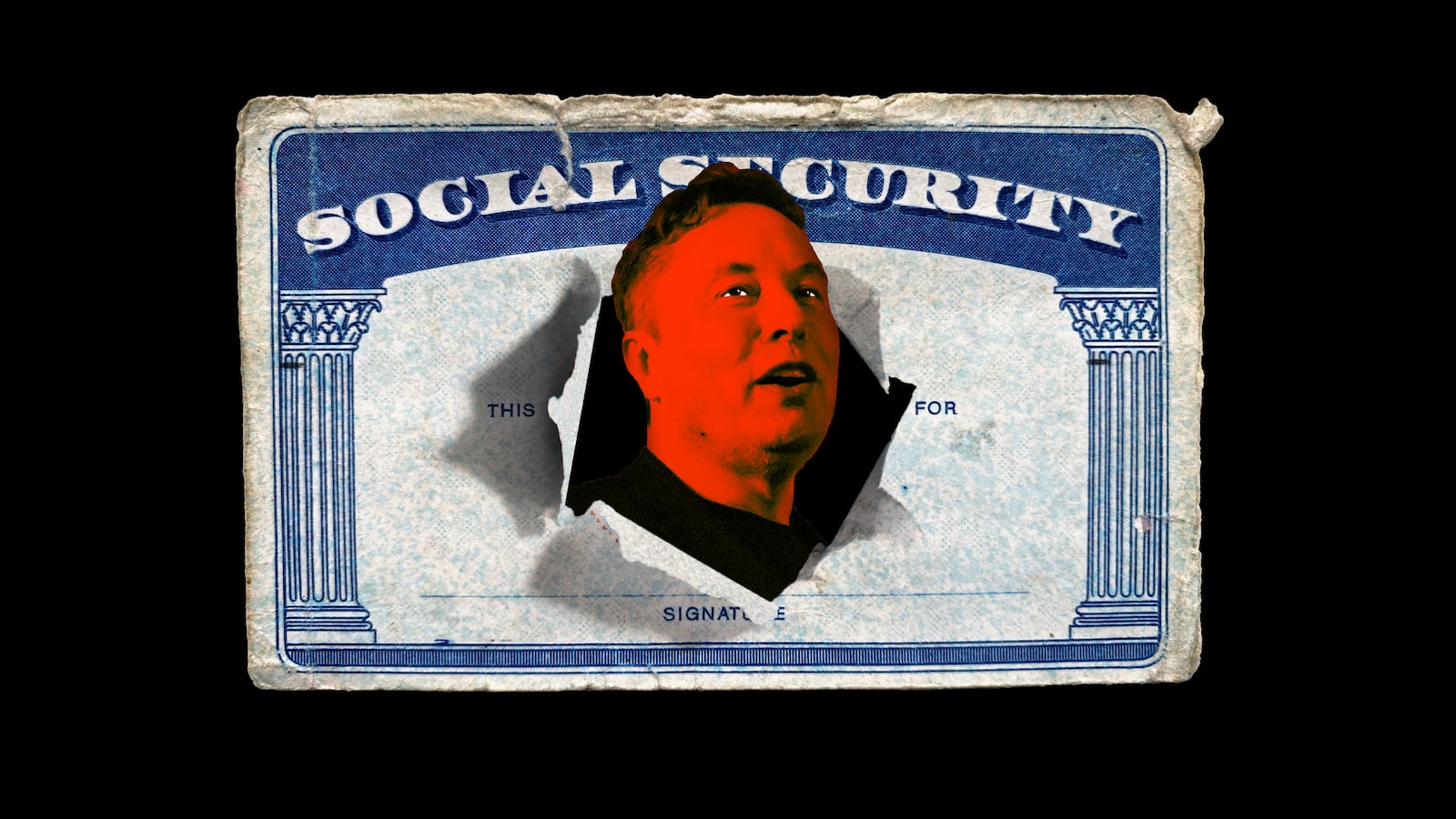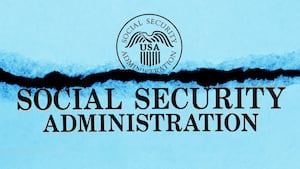One door down from a plaque marking “Where the Dodgers made baseball history and Jackie Robinson changed America”—when he became the first African American to sign with a major league team—is the downtown Brooklyn office of another manifestation of greatness.
This is also one held in high regard across all boundaries of race and class and politics.
“SOCIAL SECURITY ADMINISTRATION BORO FIELD OFFICE,” reads the sign on the seventh floor of the office building on Montague Street.
An arrow directs visitors to turn left, past double glass doors bearing the Social Security Administration logo, to a desk manned by a uniformed armed guard. An American flag stood just beyond him.
“Hello, how can I help you?” he asked me, sounding as if he really did want to be of assistance. “Do you have an appointment?
I told him I tried to call for one, but a recorded message told me I would have to wait 120 minutes to speak to somebody. I expected the guard to direct me to return another day when I did have an appointment. He instead directed me to stand in a black square marked off on the polished floor.
“Get a number and wait until you are called,” he added.
I did as bid, understanding the black square’s placement was to afford privacy to the person ahead of me, who was entering her personal information at one of the new electronic check-in kiosks the SSA installed in its 1,200 field offices last summer.
She stepped away, I took her place and entered my nine digit Social Security number. The kiosk dispensed a ticket with a three-digit number, A290, and I continued on into an immaculate, graffiti free waiting area where 10 people were scattered among four rows of several dozen seats.
Three of the walls were lined by cubicles, numbered, 1 through 33. Only a half dozen of them were occupied by clerks behind plexiglass.

The vacant seats spoke of a time before online sign-up and virtual meetings became routine. But the empty cubicles reflect a gradual reduction in the SSA workforce in recent years. There would be no extra clerks to handle the influx if Elon Musk was able to insist upon in-person dealings to curtail supposed widespread fraud. Experts put fraud in at the Social Security program at 1 percent, considerably less than in private sector insurance.
As it was on Tuesday morning, all seemed as well as it could be.
“Please make sure you have your ticket and ID ready available for the person at the window,” a pleasant voice requested over the public address system.
A succession of ticket numbers was called, along with a corresponding window number. There were no raised voices, and no angry expressions on the people’s faces as they completed their business and stepped away. The room seemed all the more brightly lit for feeling very much like the branch office of at least one government program that has remained wildly popular through all the changes and schisms of recent decades.
Here was the very opposite of the dark deep-state disaster invoked by Musk as he seeks to gut Social Security with layoffs and branch closings and service curtailments, even as President Donald Trump solemnly pledges that he would never cut it. Musk denounces Social Security as “the biggest Ponzi scheme of all time” and as a magnet for illegal immigrants (never mind non-citizens cannot collect benefits even though they often pay into it).
The real Social Security that Musk either does not know or simply ignores is described in a pair of reports released in January by the National Institute on Retirement Security (NIRS).
One report, Social Security’s First 90 Years: A History of Bipartisan and Intergenerational Support, analyzes public opinion polling between 1978 and 2023. The other report, Social Security at 90: A Bipartisan Roadmap for the Program’s Future, was conducted in conjunction with The National Academy of Social Insurance, AARP, and the U.S. Chamber of Commerce.
Together, the reports affirm that Social Security has been held and continues to be held in high esteem.
“Most people say it is [a] very important, if not the most important, program of government,” Tyler Bond, the resolutely non-partisan director of research at NIRS, told The Daily Beast on Tuesday.
Bond said that one particularly interesting result is that for almost 40 years a consistent majority of Americans have said that they think the government should spend more—not less—on Social Security. One recent change is surprising.
“For the longest stretch of time, the majority of Republican respondents said that the amount spent on Social Security is about right, but over the past 10 to 12 years [they] now say that we spend too little on Social Security,” Bond said.
As summarized by the NIRS, 87 percent of Americans—including 86 percent of Republicans and 90 percent of Democrats—say they believe that Social Security “should remain a priority for the nation no matter the state of budget deficits.” And there is little difference in this opinion across the political spectrum.
Half of Americans support actually increasing administrative spending on the program. Only 25 percent oppose it.
In some of the surveying, respondents were given a set of various policy positions to choose from, allowing them to indicate which combinations they most prefer. The result indicated support for eliminating the cap for earnings above $400,000. There was also support for raising the contribution rate from 6.2 percent to 7.2 percent for both employers and employees.
“I thought that that finding was really interesting, because it indicates that people themselves are willing to pay more in order to bring revenues into the program because [they] really want to avoid indiscriminate across the board benefit cuts,” Bond said.
He added, “It’s rare that you find people willingly saying they would contribute more to [a] program… I think with Social Security, people see a direct connection between what they contribute and what they get out of it.”
Concern over not getting it shadowed the face of one man who came into the Montague Street office. He approached the front desk clutching a manila envelope.
“I didn’t receive my check this month,” he said.
The guard directed him to the black square and he proceeded from the kiosk to a seat shortly before my number was called over the PA system.
“A290, window number 15.”
I presented my ticket and ID to a sunny woman at window 15 who wished me good morning. She asked for my Social Security number and entered it into the SSA computer system.
“Michael Daly,” she said.
I told her that was right and that I wanted to arrange tax withholding for my Social Security payments. She consulted what I realized was the very system through which Musk has given his minions access to every recipient’s personal information on the pretext of fixing what he insists on calling a scam.

In a few moments, the woman was done and I was on my way. I went out past the black privacy box that Musk was turning into a bad joke. The man with the manila envelope mail was done soon after and I paused with him on the sidewalk outside, by the very spot where Jackie Robinson made history.
The man identified himself as James Ross. He said he is 68 and an Army veteran and had been posted in Alaska.
“I went to the North Pole,” he reported “It’s cold. All that snow, wow.”
He had been homeless at the start of last winter but had escaped the Brooklyn cold in a city shelter, where he continued to receive his Social Security check. He then finally secured an apartment on Kosciuszko Street. He filed a change of address card at the post office.
But his March check did not arrive and he headed for the Social Security office on Tuesday. One of the people there had just told him that the postal people had declined to deliver his check unless he presented them with identification. He would now be heading off to straighten it out, his view of Social Security unchanged. He continued to share the opinion of the great majority of Americans for more than 40 years, across all divisions.
“I think it’s great!” he said.







